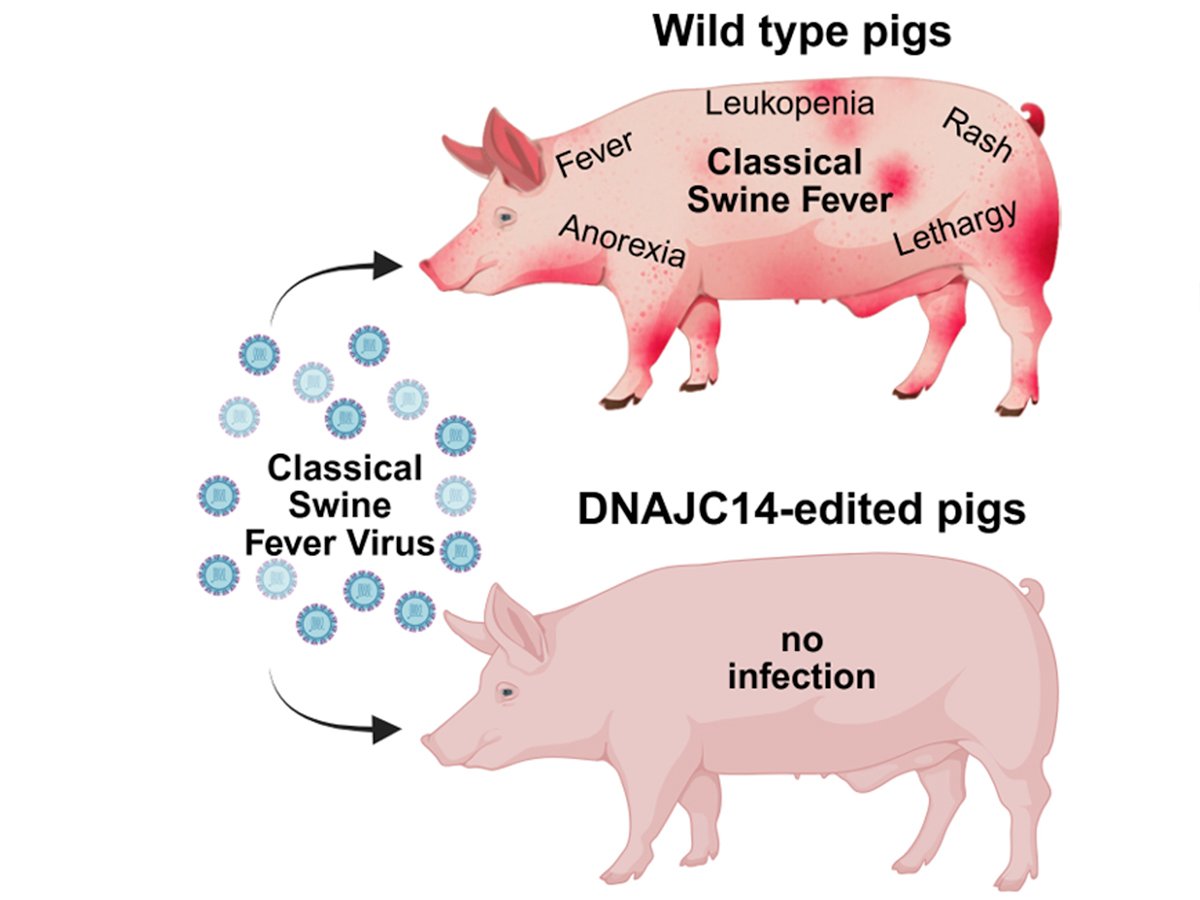Leaders of Canada’s supply management industries were on Parliament Hill last week trying to tie their fight for survival at World Trade Organization talks to the fight against rural poverty.
The group told the Senate agriculture committee Nov. 29 that any WTO deal that weakened protections against import of dairy, poultry and egg products would destroy one of the stable pillars of the rural economy.
“Our message today is clear: consistent and strong support by the government for supply management at the WTO negotiation table is a critical piece to addressing the present and future economic state of rural Canada,” said Laurent Souligny, chair of the Canadian Egg Marketing Agency.
Read Also

Gene edited pig resistant to classical swine fever
British scientists have discovered a gene edit that could provide resistance to classical swine fever in pigs and Bovine Viral Diarrhea in cattle
“If supply management were eliminated from Canada, the impact on the rural economies would be severe and profound.”
He and representatives from four other marketing agencies said the system creates stability for affected farmers, which means they can continue to live in rural Canada, buy goods from rural businesses, send their children to rural schools and help support rural communities.
They urged the Senate to support supply management as an antipoverty tool.
“We believe that supply management is a model that can be used to address rural poverty around the world,” Souligny said.
While most senators were sympathetic, there were some sharp questions, many of them dealing with the issue of high quota prices that deny all but the wealthy or family members a chance to get into the business.
British Columbia Conservative senator Gerry St. Germain, who once operated a chicken farm with quota, said the business had been good to him but he was able to afford entry only because he had already made money in another business.
“I got lucky in land development and that’s how I ended up with a chicken farm.”
St. Germain said the best way that supply management could help fight rural poverty would be to find a way to let more farmers into the system where a profit can be made.
“I cannot see much help for rural poverty in your industries simply because your industry’s rationalizing (and) in a lot of areas, the farms are getting bigger,” he said. “My understanding is it has evolved to what it is as a result of greed on the part of producers and feed companies that vertically integrated and destroyed the farmers.”
The supply management representatives answered that the real benefit of the system to the rural economy is the support that those farmers offer their communities and neighbours.
“As rural populations decline, an ever-smaller tax base exists to support the necessary rural structure,” said Souligny. “Supply management remains a stalwart within the rural tax base. This in turn makes rural Canada a better place to live and visit.”














